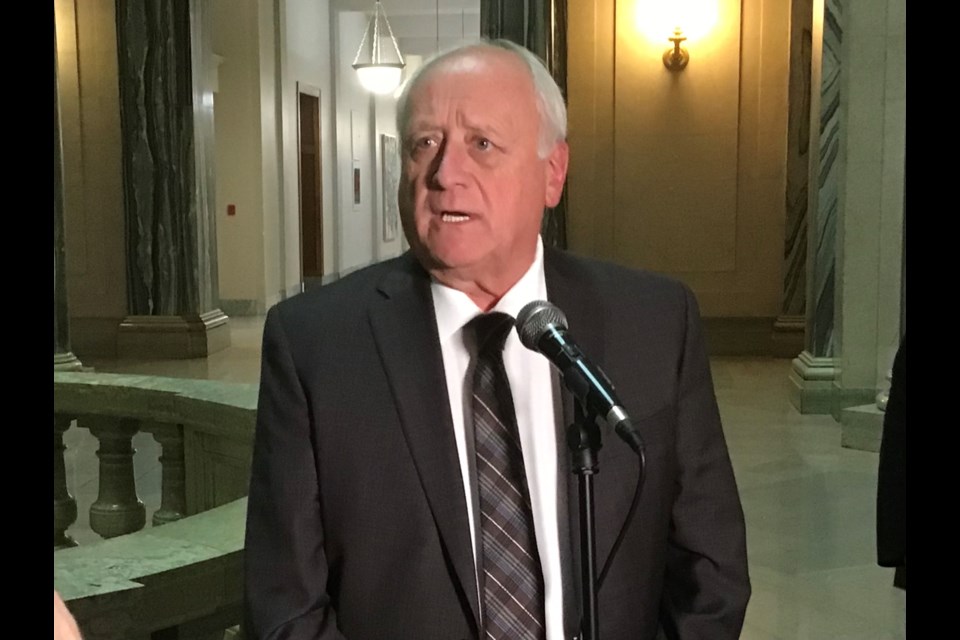REGINA - Food and meat pricing was the hot topic at the legislature Tuesday as the opposition called for a full-scale investigation into the rising prices.
At a news conference at the legislature Opposition Leader Carla Beck and their Affordability Critic Trent Wotherspoon called for an investigation and the forming of a special committee of the Legislature into the record food and meat prices seen in the province.
Their proposed committee would work with the recently formed federal Agriculture committee on food prices, as well as the Competition Bureau of Canada.
That way, said Wotherspoon, they could work on such things as “grocery store and supply chain issues, fair pricing for Saskatchewan producers and consumers, and food security in Saskatchewan’s north.”
But speaking to reporters Tuesday, Agriculture Minister David Marit was cool to the idea.
Instead of a special committee, Marit said he preferred to see an industry organization take the matter up with the Competition Bureau.
“When I met with the (Saskatchewan) Stock Growers (Association) and we had that discussion about the Competition Bureau, they said — along with ourselves — we said it would be better if an organization took it to Competition Bureau. And that’s where I think it really should be. I think it takes the politics out of it. I think it gives an opportunity for an organization, a group to take something to the Competition Bureau that has some validity on what the issue could be, and have the Competition Bureau look at it.”
The NDP had tried to put forward its by-now-familiar theme that the provincial government was not doing enough to stop prices from rising — something the Opposition has been consistently hammering the government on throughout the year. Beck pointed to the increases seen in food prices at the supermarket.
“Apples and beef up six per cent, bacon up eight p er cent, potatoes 20 per cent, and the cost of carrots up 30 per cent, But wages in Saskatchewan are up only two per cent,” said Beck. “Saskatchewan is set to lead the country in food price increases this year, but we’re second last in Canada in terms of wage growth.”
Beck pointed out that the high prices were not going to Saskatchewan producers. Instead, they were going to grocery chains.
“All this is taking place when corporate grocery chains in Toronto are raking in record profits,” said Beck. “Saskatchewan people want answers, and we believe they deserve answers. Something is simply not right with this picture. Our hard-working Saskatchewan producers tell me they are getting shortchanged when they sell their cattle to market, yet families are watching prices soar, especially in the meat aisle. These record prices, we know, are not benefitting our producers or ranchers at the schedule. People deserve to know who’s pocket those dollars are going into.”
Marit suggested to reporters at the Legislature that the prices were driven up by the carbon tax.
“This all goes back to where we were in 2015 with a carbon tax,” said Marit, who pointed to his own challenges in farming.
“I pay carbon tax on everything that comes onto my farm and I pay carbon tax on everything that leaves my farm. Now that even goes for even people in the grocery stores, they’re paying carbon tax for my grain going to the elevator, they’re paying a carbon tax on my grain leaving the elevator and going to a mill somewhere, then they’re paying for carbon tax for flour shipped to a bakery somewhere, then paying carbon tax again on that bread going to the store. So when you start looking at the tax on a tax on all the processing, it definitely does add up. To say that the carbon tax doesn’t have an impact — it has a huge impact on the food pricing and what’s happening here not only in Saskatchewan, but right across this country.”






